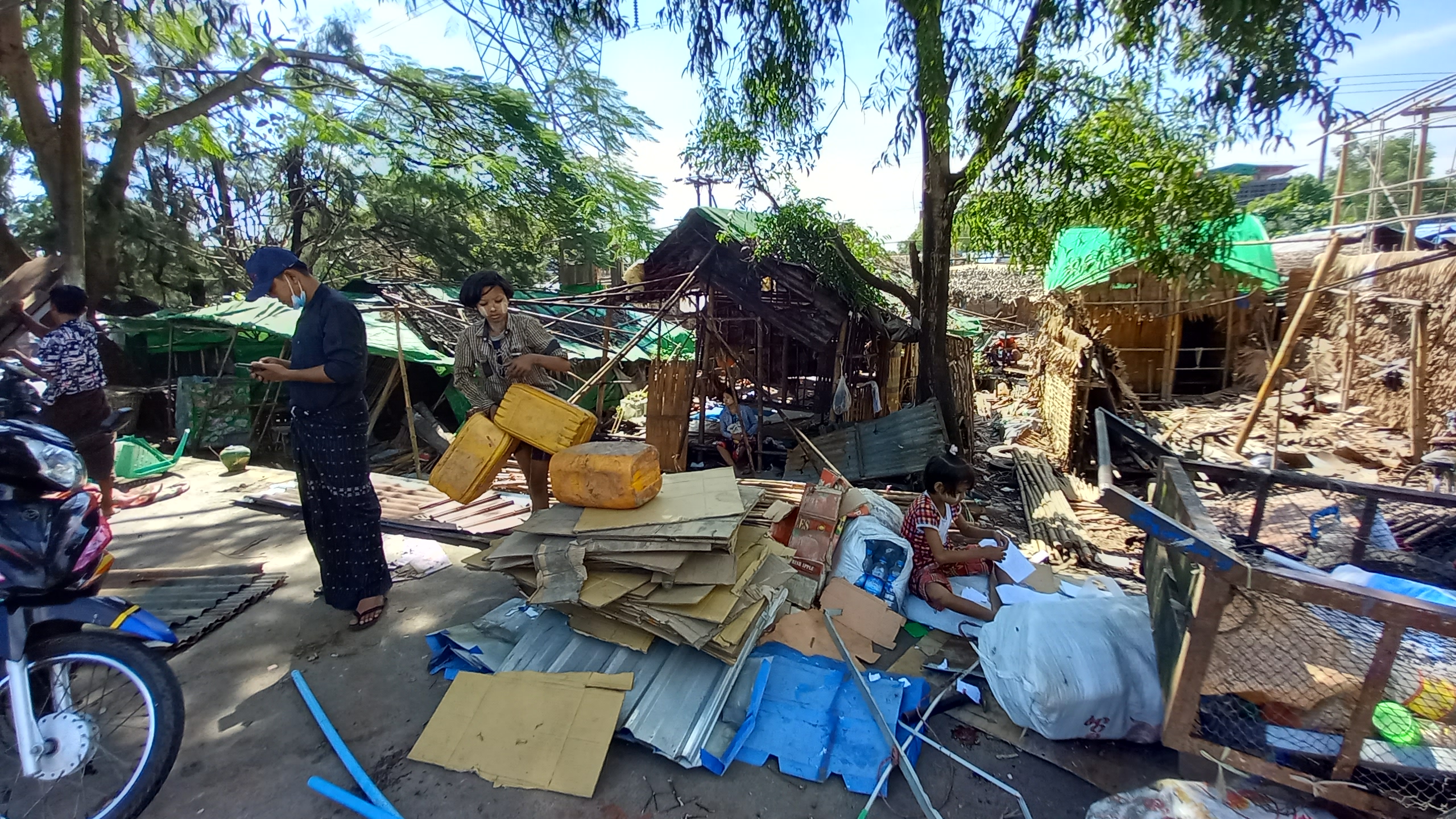After soldiers forcibly cleared the decades-old settlements along Hlaingtharyar’s Yangon-Pathein highway this week, some families, wracked by both the financial and physical costs of finding a new home, found they had no choice but to stay.
The nightmare of post-coup industrial Hlaingtharyar is represented in the experience of Ma Nilar (a pseudonym). The home that she clings to in the face of armed evictors is the space in which her son, murdered by the military during the Hlaingtharyar massacres of March, was raised.
Aung Naing Win, who was 17 years old and an employee of a company based in the township, was shot in the head whilst protesting the coup, she says.
“My son and I have lived in this house for nine years and now I have to leave here without him. I don’t want to move because I feel that my son is here with me. I appealed to the authorities and told them that I can’t be removed from here, but it made no difference. On October 28 they forced us to leave,” she told DVB.
Despite the warnings and the exodus of those around her, Ma Nilar says she has remained in her home because she lacks the funds to demolish it. She lives with a young daughter with a broken arm, and cannot take it apart on her own.
“I can’t deconstruct the house, and I have no money to rent somewhere else. I bought this house in 2014 for K12 lakh (USD$675),” she said.
Ma Nilar’s home had been designed as a legal abode for those previously squatting the land by the administration of the now maligned Phyo Min Thein. She says that she still has a permit to show that the settlement was part of YCDC’s resettlement plan, but that military authorities said they could take no responsibility for those who had benefited from the scheme.
As things stand, her hastily packed possessions line the road in front of what is left of the old neighborhood. The military still threateningly patrols the settlement with loudspeakers.
“This morning they told us that we have to move before the end of the month. They are saying that, if we stay, they can’t be held responsible for what might happen to us in the nighttime,” she said
Along the road in the settlement’s Mee Khwat Market, a mother of three children is still moving belongings from a home her family fled two days earlier. For now, she has found a space in a hostel for K60,000 (US$35) a month, but is running out of time to demolish the space her family had built.
“We’re in trouble; we cannot remove all of our belongings so quickly. We came back today to take a few more things, and then to demolish everything. Thankfully, someone has supported us with money for removal and demolition—but we had to use that to pay for our hostel,” she told DVB.
All five members of the family work collecting plastic and metal waste; the daily household income typically comes to K8,000 – 10,000 (US$4.50-USD$5.75). With such precarious means, their time spent at the hostel will be short.
“Our stay now relies on money we have received for support. After that, we will have to see if anywhere becomes available to stay, or if it is still possible to remain in Hlaingtharyar. I am sure that, for a long time to come, there will be no work.”
She is from Wakema, Ayeyarwady Region, and moved to Hlaingtharyar two years ago because business in the village was failing.
“It’s now not possible for us to go back to my home village; there is no house for us and no job opportunities. I spoke to my mother yesterday, and she told us not to return as the farm was not doing well,” she said.
Surveying the destruction, she told DVB that the home she was taking apart had been rebuilt before the monsoon with money borrowed at interest. Her family, now homeless and stuck in Hlaingtharyar as it faces the eye of the storm, has yet to start repaying its debts to local moneylenders.



